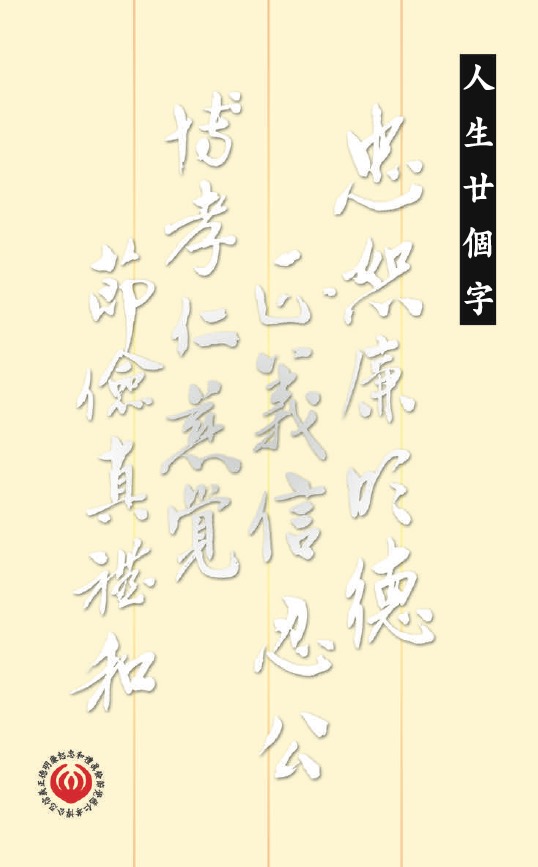Forgiveness – 恕箴
- 恕箴
- SHU (Forgiveness)
| 恕之意義 | 體諒為心 | 善若己出 | 惡勿施人 |
| 不責不及 | 不強不能 | 取長舍短 | 誰不欽承 |
恕之意義 體諒為心 待人接物,善於體貼,格外諒解,乃恕之意義。
善若己出 惡勿施人 見人之善,如己之善,己有不善,不加於人,即是善於體貼。
O (後漢書) 「孔融聞人之善,若出諸己,言有可採,必演而成之,面告其短,退而稱所長,薦達賢士,多所獎進,知而未言,以為己過,海內英俊多信服之。」O(論語)「己所不欲,勿施於人。」 施,加也。
不責不及 不強不能 人有不及之處,不必苛求,當念其犯非有意。人有不能之處,不必勉強,當憫其才力不足,即是格外諒解。
取長舍短 誰不欽承 大凡用人,不要在一人身上求全責備,若取其所長,捨其所短而用之,則天下英俊,無不欽仰承受也。
Empathy other is the central definition of the character SHU. Treat all the meritorious deeds done by others as if they were done by you; never for a moment accuse others of wrongdoing (A). We should never try to pick a person to pieces or force him to do anything that he cannot do. Instead, we should lay emphasis upon his strengths, overlook his weaknesses and give him a chance to show his worth. If we treated people this way, who would not admire and respect us?
NOTES: –
(A) Confucian Analects: “Do not to others what you would not wish done to yourself.”

